Reflections on the International Continence Society’s 2024 Annual Meeting

Written by Jenny LaCross PT, DPT, PhD, ATC, CLT, Board Certified Clinical Specialist in Women’s & Pelvic Health Physical Therapy, Recipient of the 2024 Cross-Disciplinary Ambassador Scholarship
Thanks to the generous support from the Academy of Pelvic Health’s Inaugural 2024 Cross-Disciplinary Ambassador Scholarship, I attended the International Continence Society (ICS) Fall 2024 Annual Meeting in Madrid, Spain. There, I had the opportunity to present preliminary results from one of my postdoctoral studies on the association of urogenital and levator hiatus diameter with skeletal muscle size, strength, and physical performance in older women using data from the Study of Muscle, Mobility, and Aging (SOMMA).
While this is only my second time attending ICS, the conference is especially invigorating due to its interdisciplinary scientific programming spanning a wide range of pelvic health topics. My favorite event of the conference was the 23rd Physiotherapy Forum, a half day symposium with programming designed specifically for physiotherapists. The forum began by featuring work from upcoming PhD and postdoctoral researchers, followed by multiple presentations from well-established researchers and presenters surrounding specific themes. This year, the forum was attended by a record 305 physiotherapists from 39 countries. The ICS Physiotherapy Committee, especially co-chairs Paula Igualada Martinez and Marie-Pierre Cyr, deserves a hearty congratulations and thank you for organizing such a robust program.
While all the presenters were excellent, the presentation by Marylène Charette, a PhD candidate at University of Ottawa in the Motor Function Measurement (MFM) Lab run by Dr. Linda McLean PhD, fundamentally shifted my viewpoint on clinical practice guideline implementation. Clinical practice guideline development and dissemination are essential for care elevation, but implementation rates vary dramatically. The variations in implementation rates highlight the need to understand why they occur and how to improve them. The contributions to these differences are likely influenced by discipline and practice location; however, in her presentation entitled, “The challenge of delivering evidence-informed care to females who present to their primary care provider with urinary incontinence”, Marylène identified a 2 x 2 Punnett Square of categories into which individual recommendation implementation occur based on factors of guideline adherence (moderate to high use vs poor use) and level of recommendation (Grade A vs Grade B-D). [Resource Alert: the Academy of Pelvic Health Instagram account, @aptapelvic, recently posted about levels of evidence used in clinical practice guidelines.]
Patients and providers may benefit most from increased implementation of items in the “Grade A level of recommendation but poorly used” category. Marylène discussed identified implementation barriers and facilitators for each recommendation in this category at the institutional and individual (provider and patient) level. My overarching takeaway was that incorporating individual recommendations instead of entire clinical practice guidelines may be a more efficacious way to improve long-term guideline implementation.
In addition to the thought-provoking research, an additional benefit of international conferences like ICS is connecting with familiar colleagues while also developing new professional relationships. I had the distinct pleasure of meeting and spending time with international colleagues Nelly Faghani (Canada), Gráinne Donnelly (Ireland/UK), Dr. Jennifer Kruger (New Zealand), Dr. Kari Bø (Norway), Dr. Siv Mørkved (Norway), and members of the MFM lab—Dr. Linda McLean, Silvia Saraiva, Marylène Charette, and Dr. Marina Petter Rodriguez (Canada/Brazil). I also learned from and alongside many friends and colleagues from the United States: Academy of Pelvic Health Pelvic Series instructor and former CSM Programming Chair Dr. Carina Siracusa, Academy of Pelvic Health Physical Therapy President-Elect Dr. Kim Parker-Guerrero, Dr. Jessica McKinney, Dr. Laura Keiser, and Dr. Nicole Hodges. All these individuals are involved in diverse pelvic health endeavors ranging from research and education to advocacy and innovation.
Although presentations represented a diverse set of pelvic health topics and geographic locations, one topic was discussed repeatedly in multiple ICS sessions and was recently echoed in an open-access narrative literature review in the Journal of Pelvic, Obstetric and Gynaecological Physiotherapy, “To contract or not contract: should we use pelvic floor muscle exercises in the treatment of dyspareunia?”. I want to leave you with a professional call to action reflecting this message: we must stop the “No Kegels” messaging, particularly on social media. This messaging is potentially harmful at best and, in my opinion, ethical misconduct at worst. Ample evidence was presented at ICS, building and expanding upon the already existing base of high-level evidence, that pelvic floor muscle training is efficacious as part of a care management plan for multiple pelvic health diagnoses and symptoms. While the conversation is nuanced and care plans should be individualized for each person, we, as healthcare providers, cannot and should not perpetuate medical misinformation, especially on a topic for which ample high-quality evidence exists.
Acknowledgment: Thank you to Drs. Laurel Proulx DPT, PhD and Andrea Wood DPT, PhD(c) for providing feedback on grammatical and thought clarity.
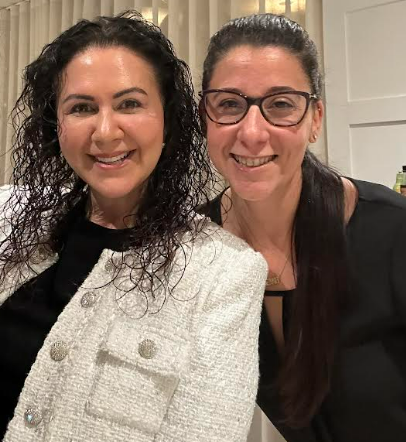
Delighted to meet Nelly Faghani, owner and instructor for Pelvic Health Solutions.
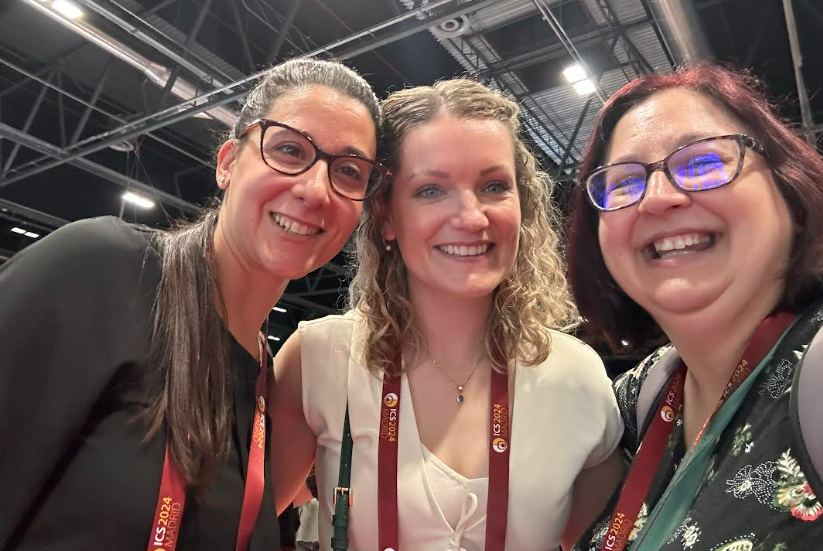
Exhibit hall with Gráinne Donnelley, editor of the POGP Journal, and Dr. Carina Siracusa, South College-Knoxville DPT Program faculty and Instructor for the Academy of Pelvic Health- Pelvic Course series.
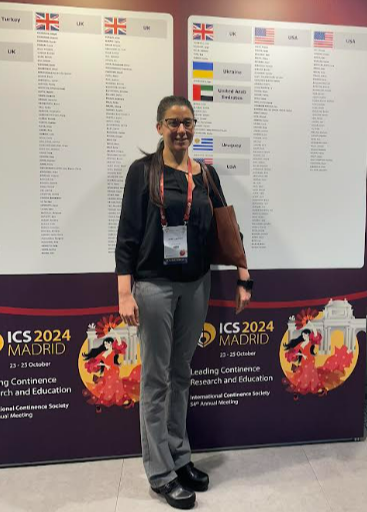
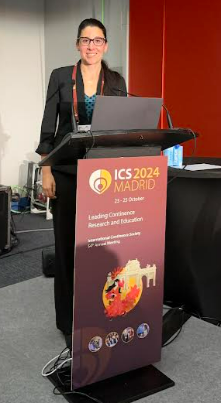
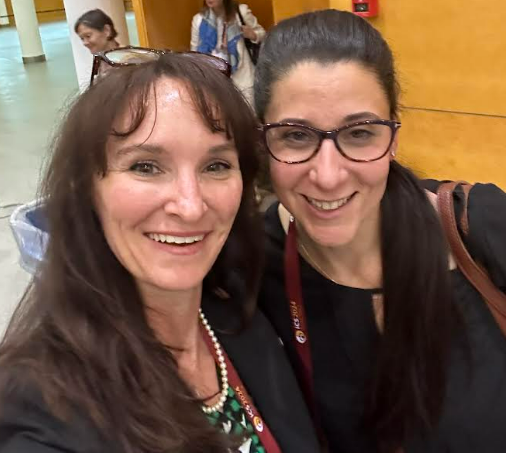
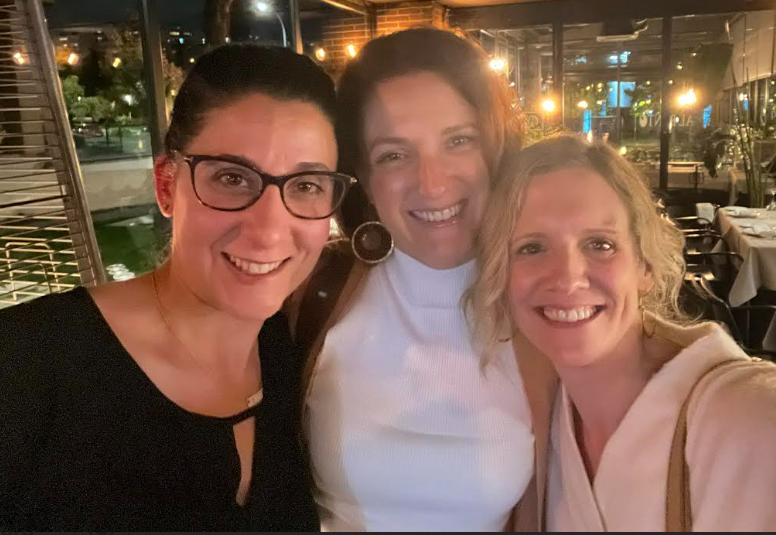

Interested in the Cross-Disciplinary Ambassador Scholarship Program?
We are accepting applications for the 2025 calendar year.


